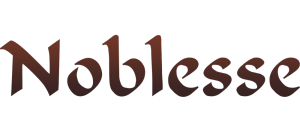A Tale of 3 CRMs: What is CRM and What Does it Do?
Content
This will empower your sales and marketing teams to run promotional campaigns to drive repeat business. Collaborative CRM systems are tools that allow multiple users to access and manage customer data and interactions in a centralised location. In other words, they are designed to facilitate communication and collaboration among teams, making it easier to manage and nurture customer relationships.
- CRM stands for Customer Relationship Management, and it’s fast becoming essential software for businesses of all sizes.
- Decide what data you need to store and what you expect to gain from CRM software.
- In addition to a set of free tools, there are additional features included in professional monthly subscriptions.
- The success of a CRM database really depends on how well it is integrated into the business.
- It works in the background and is all the time supplying helpful information to decision-makers.
That particularly includes companies that have multiple locations and that provide omnichannel support. If your customers have ever grumbled about having to repeat themselves after being transferred from one department to another, a collaborative CRM is worth considering. Customers now expect brands to be available across multiple channels. It’s important to understand which channels your customers prefer, and figure out the best ways to meet them where they are. Collaborative CRMs help track which channels your customers are using for different types of contact, to ensure you’re available when they need you where they want you.
What Types of CRM Are There?
You can make better decisions about where to spend your marketing budget by using data tracking and analytics. The ability to parse and analyse datasets in line with specific algorithms forms the basis of business intelligence tools. An automotive dealership, for example, might use a CRM to keep track of customers’ preferences. Its sales team targets red cars and blue cars, and its marketing department deals with blue and yellow cars. Here we look at some of the more popular CRM tools, their features, and their distinct advantage.
You will also uncover 4 amazing features all CRM strategies need in today’s current digital market. Our certified experts work with businesses to configure, develop and integrate Salesforce systems. Salesforce is the world’s number one CRM system and can work absolute wonders for business transformation and digitisation.
What are the types of CRM?
The complexity of this software can vary widely depending on the company’s needs. A half-way house between bespoke and outsourced solutions, this involves renting a customised suite of CRM applications as a bespoke package. This can be cost effective but it may mean that you have to compromise in terms of functionality. The core team, however, has been together for more CRM software than 25 years – which means we have a great deal of experience as an independent CRM consultancy. You won’t want to start over from scratch because you outgrew the CRM you chose, so consider today the potential needs of your future. While there’s a fair amount of overlap between the three categories of CRM, each one tends to focus on particular functions and features.

Quotes Management –Some businesses provide services that require quotes, such as companies in the insurance industry, financial industry, or the housing market. Although a basic quotes and proposals feature is not crucial for every business, it comes in handy. The majority of CRM platforms offer this feature to help the sales team send accurate quotes to clients with greater efficiency and minimal fuss.
What Are The Key Features Of CRM Systems
Analytical CRMs help you to look at data that you hold about customers, obtained from various sources, in order to improve customer acquisition and retention. By allowing you and your team to view the current status of your leads, customers and what needs to be done as well as what has been done it allows your business to grow, reduces complexity. As the acronym would suggest, CRM software is the place where you store, organise and manage the relationships with your customers. Importantly, it is theonlyplace and therefore acts as a single source of truth for all information about your customer. Each form of CRM has a different core purpose; for instance, Operations CRMs are designed to organise and streamline processes, while an Analytical CRM is used for analysis and data gathering. In general, Operational CRMs are the most popular form of CRM for optimising businesses.
Businesses should always work hard to improve CLV, and the best way to do so is to invest in improving customer relationships, a.ka., customer relationship management. A customer relationship management system includes a database and software to automate the CRM process. CRM enables marketers to create, run, and monitor marketing campaigns.
Reporting features
StudySmarter is commited to creating, free, high quality explainations, opening education to all. By registering you get free access to our website and app which will help you to super-charge your learning process. https://xcritical.com/ A lead can give his information, but that doesn’t mean he will make a future purchase from the company. It happens when the customer interacts with the business and has little information about it.

Leave a Reply
Want to join the discussion?Feel free to contribute!